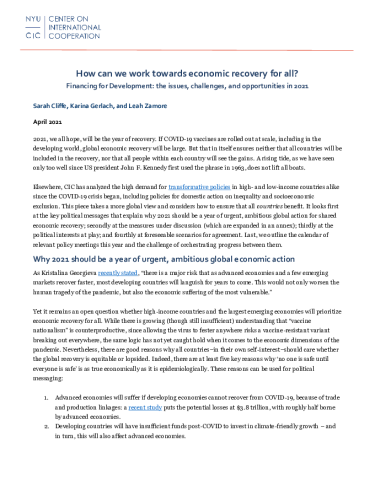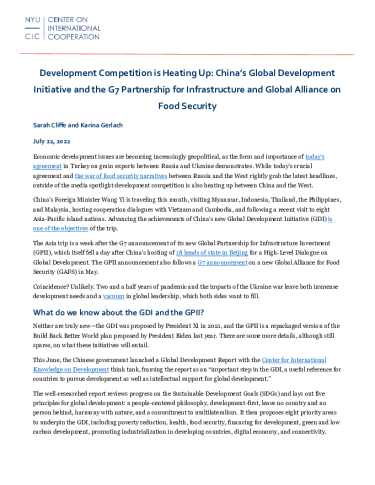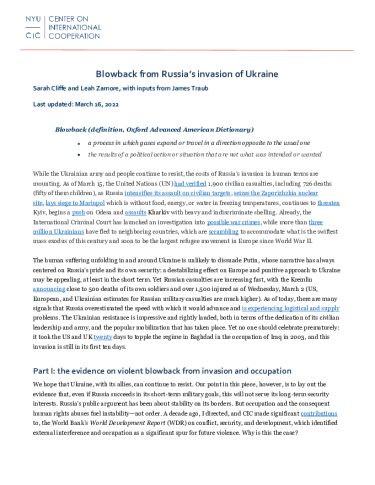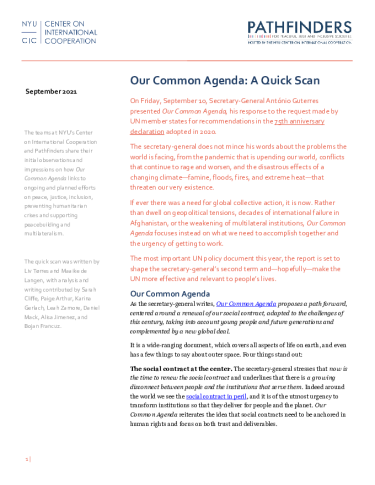2021, we all hope, will be the year of recovery. If COVID-19 vaccines are rolled out at scale, including in the developing world, global economic recovery will be large. But that in itself ensures neither that all countries will be included in the recovery, nor that all people within each country will see the gains. A rising tide, as we have seen only too well since US president John F. Kennedy first used the phrase in 1963, does not lift all boats.

Elsewhere, CIC has analyzed the high demand for transformative policies in high- and low-income countries alike since the COVID-19 crisis began, including policies for domestic action on inequality and socioeconomic exclusion. This piece takes a more global view and considers how to ensure that all countries benefit, and examines the issues, challenges, and opportunities in financing for development. It looks first at the key political messages that explain why 2021 should be a year of urgent, ambitious global action for shared economic recovery; secondly at the measures under discussion (which are expanded in an annex); thirdly at the political interests at play; and fourthly at foreseeable scenarios for agreement. Last, we outline the calendar of relevant policy meetings this year and the challenge of orchestrating progress between them.
Read the full analysis: How Can We Work Towards Economic Recovery for All?



